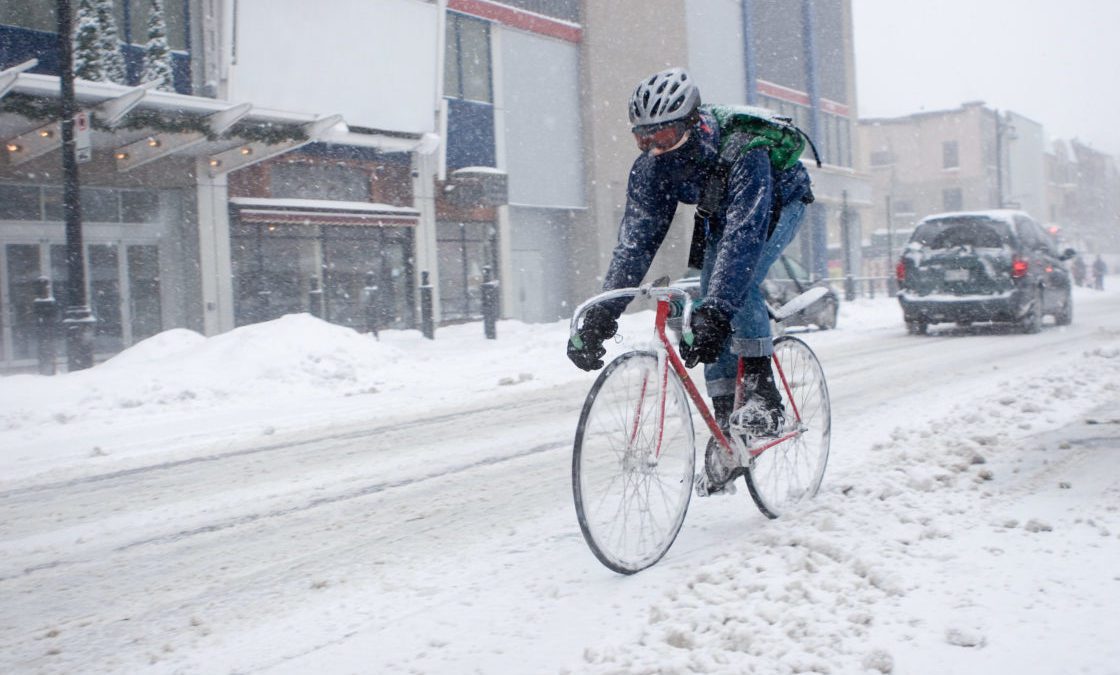Did the Supreme Court just pave the way to make snow clearance in bike paths mandatory?
Winter weather can make bike paths extremely risky

In most areas of Canada, winter is here, or definitely coming. That means soon there will be snow and ice in driveways, sidewalks and bike paths. The past few years have seen an explosion of cyclists, which means this winter there will be more cyclists than ever commuting to work or school. In many cities across Canada, there is often a problem with bike lanes not being cleared of ice or snow, creating precarious conditions for commuters by bike.
With winter biking around the corner, ice and snow blocking bike lanes could act as a deterrent for those who would like to cycle. There are also those who claim cycling all-year round is not a safe activity. However, that shouldn’t be the case, and it seems that in fact, it may no longer be, if things go according to plan.
According to Toronto’s Dave Shellnutt, a.k.a The Biking Lawyer, the Supreme Court in Nelson (City) v. Marchi, may have given cyclists a way to demand municipal bike lanes be clear of snow and safe to ride during the winter months. “Municipalities across Ontario need to take steps to make cycling safer, not just during fair weather cycling months but year-round.” Shellnutt said. “A recent Supreme Court of Canada ruling on municipal duties as it relates to snow clearing may provide the legal incentive needed to get our town and city councils to be pro-active.”
Winter riding on the rise, says Calgary-based cold-weather cycling veteran
Following a heavy snowfall, Nelson City workers cleared snow from city street parking stalls and the adjacent sidewalk. That resulted in a snowbank between the two but no way from street parking to the businesses. Ms. Marchi left her car and was forced to climb over the snowbank to get to the sidewalk, resulting in a fall and serious injury. She then sued the city, but the trial judge dismissed her claim, “because its snow removal decisions were ‘core policy decisions’. A municipality can escape liability if the relevant government decision is protected by core policy immunity.”
Shellnutt explains that “The City of Nelson, B.C. claimed that its decisions about snowplowing, which resulted in snowbanks being created along the city curbs, separating parking stalls from sidewalks were policy decisions rather than simply operational ones.”
The Supreme Court maintained that the decision to clear snow, resulting in leaving large piles of snow between parking and the sidewalk was an operational decision. The Supreme Court then said that. “Insulating these kinds of decisions from negligence liability does not undermine the ability of governments to make important public interest policy choices. The public interest is not served when ad hoc decisions that fail to balance competing interests or that fail to consider how best to mitigate harms are insulated (from review). Oversight of such decisions respects the relevant roles of each branch of government.”
“Cyclists in municipalities across Ontario need to ask their local governments to be proactive in bike lane snow removal,” Shellnutt said. If the bike lanes are plowed, people will use them. If they aren’t the ride to work can become far riskier.
